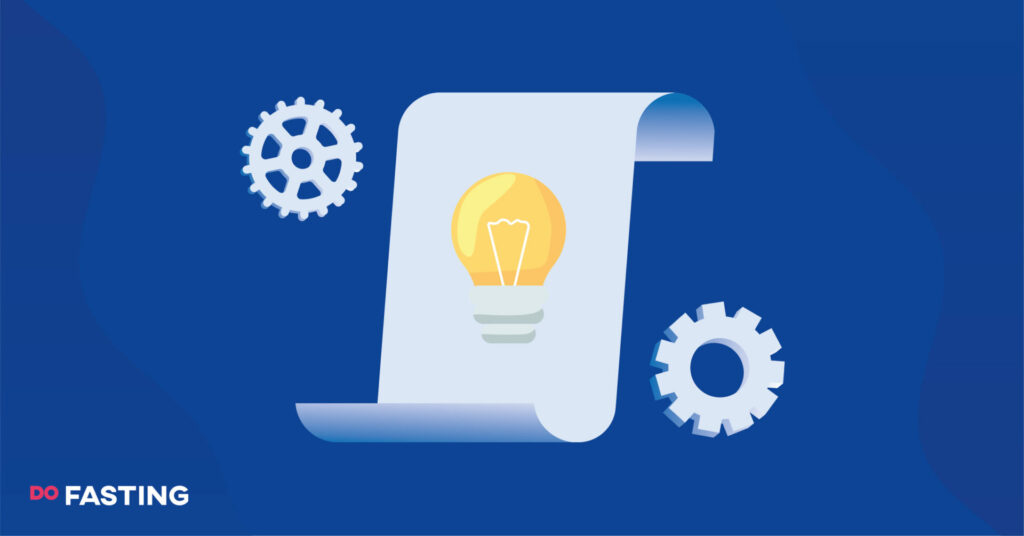Contents
What Is the Fruit Fast, and How Does It Work?
The fruit fast is a fasting diet that entails consuming primarily raw fruits for a specified amount of time. It is considered a natural healing method as it detoxes the body, removing the build-up of waste and toxins from your digestive system.
Unlike water and juice fasting, you can eat solid foods. Food intake is highly restrictive, focusing on only fresh fruits and vegetables. Some variations may allow you to eat nuts. The purpose of the fruit fast is faster weight loss and detoxification.
Consuming only raw fruit significantly reduces your calorie intake. This encourages weight loss and alters the way your body stores and burns body fat.
Fasting removes your body’s usual fuel source—glucose. Your cells, therefore, resort to other means of energy production.
The fruit diet is not recommended for extended periods, as it does not include all the important nutrients a person needs for good health. Advocates may follow specific detox days, while more advanced dieters may fast for up to three weeks.
Take a
1-minute quiz
and discover how much weight you can lose with DoFasting!

Types of Fruit Fasting
There are two main types of fruit fasting. Keep reading as we discuss both to help you determine which fast may be best for you.
The one-fruit fast
The one-fruit fast, also known as mono-fruit fasting, is a fasting method in which you choose a single fruit to consume for the duration. It’s best to select fruits with cleansing properties; for example, you might only eat melons, apples, or grapes.
It provides an easy diet that requires little to no preparation. You can simply reach for your fruit of choice at meal times. It is still essential to monitor how much fruit you eat so you don’t exceed your daily calorie intake.
The any-fruit fast
The any-fruit fast means you can enjoy fruit combinations without limiting yourself to one particular fruit. Again, it’s best to opt for fresh fruits that are more effective for cleansing and avoid dried fruit with more calories and sugar.
As fruit fasting does not provide a balanced diet, you shouldn’t continue the fast for more than one week. While fresh fruit is highly nutritious, replacing all meals with fruit will eliminate many essential nutrients that you need from other food groups.
What You Can and Cannot Eat During Fruit Fasting
The fruit diet strictly limits what you can and can’t eat. You’re essentially cutting out key macronutrients that make up a healthy diet and limiting yourself to fruits.
It’s best to stick with fresh fruit to optimize your intake of vitamins and minerals. Canned fruits sometimes lose nutrients during the manufacturing process. Canned fruit often has a higher sugar content, too, if they contain added juice or syrup.
Below is a list of foods you can eat on the fruit diet.
- Fruit: Those with high water and vitamin content are best, such as apples, melons, grapes, oranges, and pineapples. Bananas are another good choice. Although they may not cleanse your body as effectively as other fruits, they contain plenty of fiber to keep you feeling full.
- Vegetables: You can eat vegetables raw or cooked. Good examples include tomatoes, courgettes, and leafy greens.
- Nuts: Depending on the fruit diet you follow, some allow you to eat nuts. Walnuts are an excellent nut for intermittent fasting.
You must avoid eating the following:
- Processed foods: Breakfast cereals, bread, processed meats, sugary snacks, etc.
- Meat, eggs, and dairy
- Whole grains
Benefits of Fruit Fasting
One sure benefit of the fruit diet is weight loss. Consuming only fruit and vegetables drastically decreases the number of calories you consume. Fruit is generally low in calories and high in fiber, meeting the perfect requirements to help you lose weight.
Fiber intake promotes satiety and may reduce energy intake, helping you refrain from eating more throughout the day. Low-calorie foods that keep you feeling full for longer are key to a successful weight loss diet as they promote a calorie deficit.
Other advantages of fruit fasting can only be associated with general weight loss benefits, including:
- Reduced risk of diseases: Losing excess weight can lower your blood pressure and cholesterol levels, reducing your risk of developing certain conditions, including heart disease, stroke, and diabetes.
- Increased energy: Losing weight boosts energy levels as you no longer need so much energy to get around. It also improves respiratory function, positively affecting physical activity levels.
A safe and healthy weight loss pace is losing 1-2 pounds per week. Losing weight at this pace enables you to keep the pounds off. On the flip side, the fruit diet may result in rapid weight loss that exceeds the 1-2 pound mark, which can be detrimental to your overall health.
Fast weight loss from extreme dieting is generally only short-lived. You will likely regain the weight lost from a fruit fast when you return to a regular dietary pattern.
Take a
1-minute quiz
and discover how much weight you can lose with DoFasting!

Risks and Downfalls To Consider
Any restrictive diet has potential drawbacks. Always speak to your doctor before trying a fruit fast, even if you only plan to detox for three days.
Possible disadvantages include:
- Hunger and cravings: You may feel hungry when you eliminate essential dietary groups from your diet and severely restrict your calorie intake.
- Very restrictive: Fruit fasting is an extreme form of dieting that restricts you from consuming most foods. Many people may struggle to maintain the restrictions.
- May lead to nutrient deficiencies: Nutrient deficiencies can occur when you eliminate certain products from weight-loss diet plans. The fruit diet cuts out vital nutrients, including fats and proteins, causing an imbalance of both macronutrients and micronutrients.
- Weight loss is temporary: Rapid weight loss leads to weight gain for most people. Your body may revert to how it was when you return to your usual diet as your metabolism adapts.
- Unsustainable: It is unhealthy to attempt to fruit fast for extended periods. It offers a temporary fat loss solution rather than a sustainable lifestyle choice.
3 Essential Tips To Make the Fruit Fast Work
If you want to go ahead with the fruit diet, the following tips can help you succeed.
1. Stay hydrated
Hydration is critical for any diet; you should always drink water to maintain adequate hydration. During intermittent fasting, it helps keep you energized and restores lost water and electrolytes that you’d usually get from foods eaten.
Most fruit diets recommend that you drink water only and avoid coffee, orange juice, and other sugary drinks.
2. Stay active
Staying physically active ensures you are burning calories and supports overall health. Your energy levels may drop on the fruit diet as you are not getting enough nutrients. So, it’s important to practice light exercise rather than intensive activities to ensure safety.
Daily walking is an excellent exercise for improving cardiovascular fitness and shedding pounds without overexerting yourself.
3. Food quality matters
While fruit and vegetables are staples of a healthful diet, some are better than others for fruit fasts. Plus, if you’re limiting yourself to one food group, you should focus on quality.
Opt for high-quality, organic fruits that pack plenty of vitamins and minerals to support your health. You can enjoy sweet fruits, but selecting those with a lower sugar content is best.
Should You Start Fruit Fasting Now?
Fasting is not for everyone, especially the most restrictive forms like fruit fasting. Always talk to your doctor for professional medical advice before attempting a new diet.
Generally, those with certain conditions should avoid fruit fasting, such as:
- Food allergies and fructose intolerance
- Cardiovascular diseases
- Type 1 or type 2 diabetes
- Eating disorders
- Pregnant and breastfeeding women
Getting started with intermittent fasting can be challenging, but that’s where DoFasting comes in. The DoFasting app provides the tools necessary for success with fasting, including calorie and macros tracking.
Take a
1-minute quiz
and discover how much weight you can lose with DoFasting!

Conclusion
Fasting with fruit gives the digestive system a break and provides an effective cleanse as it rids your body from waste from your ordinary eating habits. It is ultimately a detox that may bring health benefits, including weight loss.
While the fruit fast can help you lose some pounds, it is not the most healthful fasting plan to practice. You may want to start intermittent fasting with a schedule that does not eliminate your essential dietary needs.
See how DoFasting will improve your life
Find out what works for you with this 60-sec quiz approved by our experts and get your personal revolutionary fasting assistant.
Start the Quiz
This is an evidence-based article that includes scientific citations. DoFasting’s professional writers and editors prepared the content, which a team of medical experts verified to be accurate.















